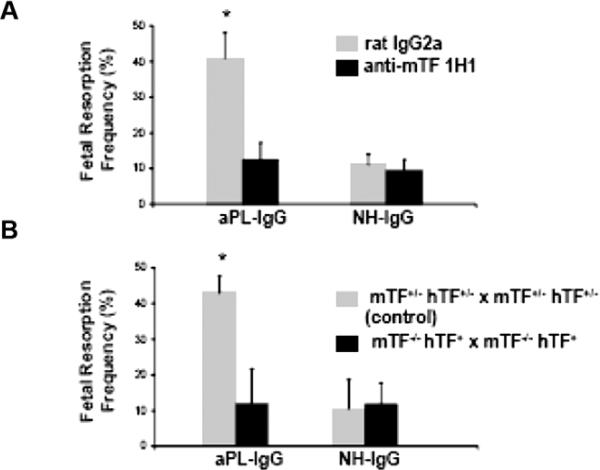Figure 2.
Blockade of TF with a monoclonal antibody in wild type mice or a genetic reduction of TF prevented aPL-induced pregnancy loss. (A) Mice that received aPL-IgG had a high frequency of fetal resorption than those that received normal human IgG (P < 0.001). Treatment with anti-TF mAb 1H1 led to a significant reduction in the frequency of fetal resorption compared with those mice receiving aPL-IgG (P < 0.01). Rat IgG2a, used as control antibody, did not affect pregnancy outcomes. (B) Approximately 40% of the embryos in control mice (mTF+/-, hTF+) treated with aPL-IgG were resorbed. Mice expressing low activity of TF showed a reduction in aPL-induced fetal resorption frequency than control mice (P < 0.001, originally published by Redecha, et al.45).

